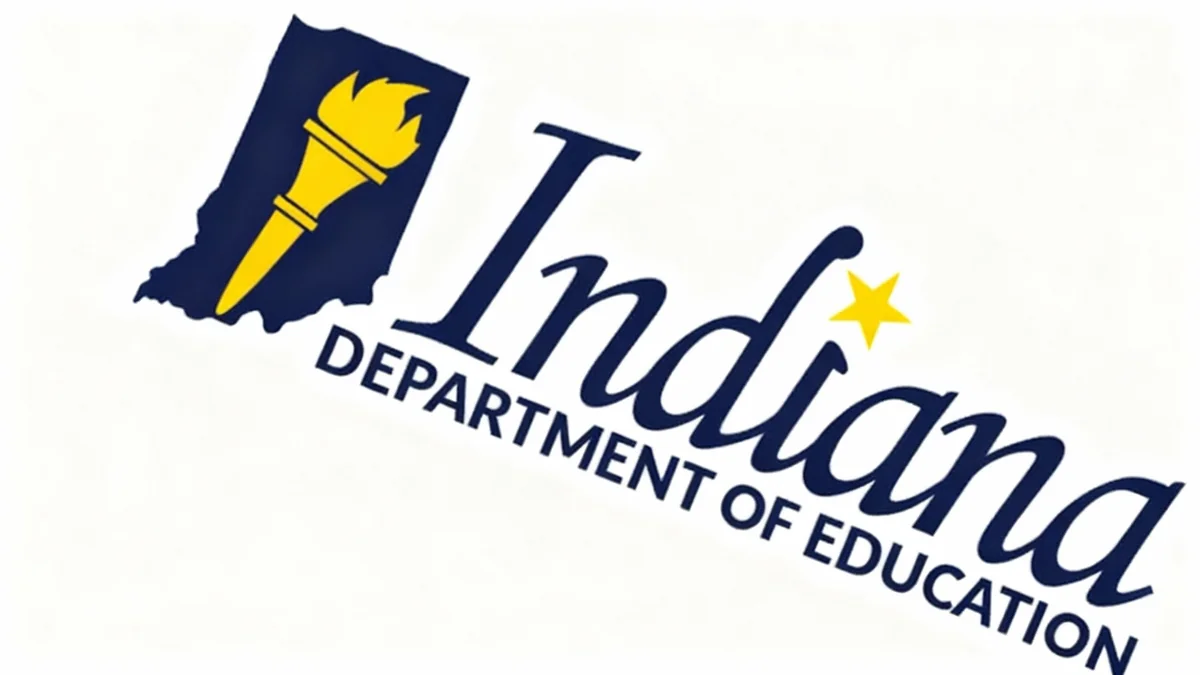The Indiana Department of Education has formally requested to bypass certain federal education mandates, a move state officials say is designed to cut bureaucratic red tape and give local schools more control. The waiver application, submitted to the U.S. Department of Education on Tuesday, targets specific requirements of the Elementary and Secondary Education Act (ESEA).
If approved, the changes would grant Indiana more flexibility in its approach to school accountability and student support, potentially reshaping how schools operate starting in the 2026–2027 academic year. The federal government now has a 120-day window to review and respond to the state's proposal.
Key Takeaways
- Indiana's Department of Education has submitted a waiver request to the U.S. Department of Education to bypass parts of the federal Elementary and Secondary Education Act (ESEA).
- The stated goal is to reduce bureaucracy and give schools more flexibility to focus on student success.
- The waiver does not affect provisions under other federal laws, such as the Individuals with Disabilities Education Act (IDEA).
- If approved, these new flexibilities would be implemented starting with the 2026–2027 school year.
A Bid for Greater Flexibility
State officials are framing the waiver request as a strategic effort to empower educators and administrators by removing what they describe as unnecessary federal constraints. The core argument is that increased local control will allow schools to better address the unique needs of their student populations.
The move follows a public comment period that lasted more than a month, gathering input from stakeholders across the state. Governor Mike Braun endorsed the submission, emphasizing its alignment with a broader state strategy focused on high expectations and smarter accountability.
“Indiana continues to lead the nation in education and innovation,” said Governor Braun. “We can best support Hoosier students when we return education to the states, empower parents with high-quality educational options, get red tape out of the way for educators, and focus on improvement for every student.”
The ESEA, a cornerstone of federal education law, sets standards for accountability, school improvement, and reporting. Indiana's proposal seeks specific exemptions from this act, though it does not request any changes to laws protecting students with disabilities, such as the Individuals with Disabilities Education Act (IDEA).
What is the Elementary and Secondary Education Act (ESEA)?
Originally passed in 1965, the ESEA is the primary federal law governing K-12 education. It has been reauthorized multiple times, most recently as the Every Student Succeeds Act (ESSA) in 2015. The law aims to ensure equal opportunity for all students by providing federal funding to schools and holding them accountable for student performance, particularly for disadvantaged student groups.
By requesting a waiver, Indiana is essentially asking for permission to implement its own accountability and support systems, which it argues can be more effective and responsive than the federally mandated ones.
Building on Recent Successes
The Indiana Department of Education (IDOE) is presenting its waiver request as a logical next step, building on a foundation of recent academic gains. State officials point to a series of positive trends as evidence that Indiana is prepared to manage its own educational strategy with less federal oversight.
Dr. Katie Jenner, Indiana Secretary of Education, positioned the decision as a pivotal moment for the state.
“With the opportunity to return education back to the states, we had a clear choice to make in Indiana: continue with the status quo or seize this moment to gain the flexibilities needed to remove federal barriers to more urgently move the needle for students,” Dr. Jenner stated. “As a state, we are leaning in to seize this moment.”
The department highlighted several key achievements to bolster its case for more autonomy. These accomplishments suggest that state-led initiatives are already producing significant results.
Indiana's Recent Educational Gains
- Literacy Rates: Third-grade literacy rates saw a 5 percentage point increase in a single year, the largest jump in the state's history. Literacy rates improved for all student populations in 2025.
- National Rankings: Indiana now ranks 6th in the nation in reading, according to the National Assessment of Educational Progress (NAEP).
- Student Attendance: Chronic absenteeism has improved by over 4 percentage points since 2022.
- Math Proficiency: Math scores have shown a significant increase across all grade levels since 2021.
- College Readiness: The state leads the nation in the percentage of students who complete at least one college course while still in high school.
- Graduation Rate: Indiana recorded its highest-ever graduation rate in 2024.
These statistics are central to the state's argument that it has earned the right to innovate without being hindered by a one-size-fits-all federal framework.
The Path Forward
With the waiver request now officially submitted, the focus shifts to Washington, D.C. The U.S. Department of Education has approximately four months to conduct its review, provide feedback, and ultimately decide whether to approve or deny Indiana's application.
If the waiver is granted, the real work for Indiana's education leaders will begin. They will be tasked with designing and implementing a new state-level system for the 2026–2027 school year. This system would replace the waived federal requirements and would need to demonstrate its effectiveness in improving student outcomes.
The message from Indianapolis is clear: the state is confident in its ability to manage its educational system and is eager for the freedom to do so.
“Our message to Washington is clear: Indiana is ready and eager, so give us the flexibility to keep driving forward for Indiana students!” Dr. Jenner concluded.
The outcome of this request will be closely watched by other states that may be considering similar moves to assert more local control over their education systems. A successful waiver for Indiana could set a precedent for how states interact with federal education law in the years to come.





